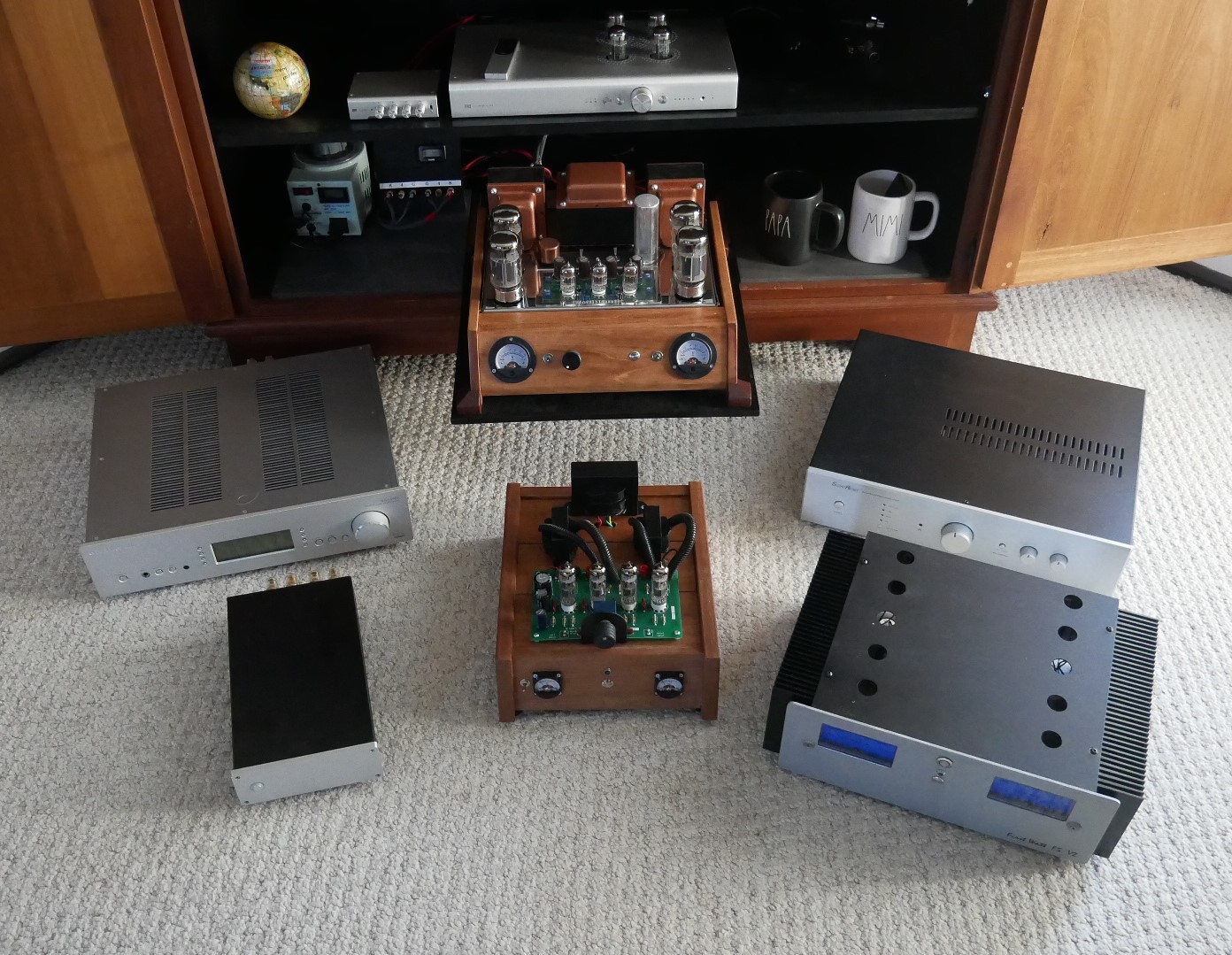Let me end the Premp/Amplifier sound debate ...
I'm old enough to remember Julian Hersch from Audio magazine and his very unscientific view that all amplifiers sounded the same once they met a certain threshold. Now the site Audio Science Review pushes the same.
I call these views unscientific as some one with a little bit of an engineering background as well as data science and epidemiology. I find both of these approaches limited, both in technology used and applied and by stretching the claims for measurements beyond their intention, design and proof of meaning.
Without getting too much into that, I have a very pragmatic point of view. Listen to the following three amplifier brands:
If you can't hear a difference, buy the cheapest amplifier you can. You'll be just as happy. However, if you can, you need to evaluate the value of the pleasure of the gear next to your pocket book and buy accordingly. I don't think the claim that some gear is pure audio jewelry, like a fancy watch which doesn't tell better time but looks pretty. I get that, and I've heard that. However, rather than try to use a method from Socrates to debate an issue to the exact wrong conclusion, listen for yourself.
If you wonder if capacitors sound different, build a two way and experiment for yourself. Doing this leaves you with a very very different perspective than those who haven't. You'll also, in both cases, learn about yourself. Are you someone who can't hear a difference? Are you some one who can? What if you are some one who can hear a difference and doesn't care? That's fine. Be true to yourself, but I find very little on earth less worthwhile than having arguments about measurements vs. sound quality and value.
To your own self and your own ears be true. And if that leads you to a crystal radio and piezo ear piece so be it. In my own system, and with my own speakers I've reached these conclusions for myself and I have very little concern for those who want to argue against my experiences and choices.


